Talonbooks Latest Publications

| Address: |
P.O. Box 2076, Vancouver BC, V6B 3S3, Canada |
| Email: |
|
| Website: |
|
| Telephone: |
1 888 445-4176 |
| Fax: |
604 444-4119 |
Latest Publications - click on covers to see full Publisher's details
Jack Winter | My TWP Plays: A Collection including "Ten Lost Years" |
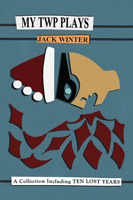 : : | My TWP Plays presents five important plays written by Jack Winter while he was resident playwright at Toronto Workshop Productions, one of the first great troupes of the experimental and alternative theatre movement. The carnivalesque style of the selected works in this anthology reflects the turbulence, contradictions, and subversion of the social revolution during which they were written and first produced, as well as the cultural politics at a time when Canadian artists were investigating new, noncolonial, and distinctly Canadian forms of expression that would define the nation and challenge received artistic styles and practices. Extensive notes by the playwright and a foreword by the director and dramaturge Bruce Barton (University of Toronto) illuminate an important two-decade period in the evolution of contemporary Canadian theatre, while providing glimpses of the artistic conditions, the cultural environment, and the personal circumstances within which the works were created. |

Marie H Clements | Tombs of the Vanishing Indians |
 : : | Three Young Native American sisters and their mother board a bus bound for Los Angeles, leaving home as part of a 1950s government mandate to relocate reserve Indians to urban centres. This assimilationist policy was one focus of Métis playwright Marie Clements�s research when she was commissioned to create a new play for the tenth anniversary of the Native Voices series at the Autry National Center, Los Angeles. Clements dramatizes the emotional, psychological and social repercussions of this, and subsequent, bureaucratic incursions into the girls� lives. Their arrival in California takes a tragic turn when their mother is suddenly killed and the girls are arbitrarily placed in different foster homes, never to see each other again. We follow Janey, Miranda and Jessie as they lead very disparate adult lives: Janey, a troubled vagrant; Miranda, a burgeoning actress fighting typecasting in Hollywood; Jessie, an idealist physician who�s married to a medical colleague. As it was bureaucratic policy that had dismantled their secure family unit and sent each girl into the unknown, so too did a government paper ultimately bring them together, if only symbolically. Clements casts the sisters� narrative against the backdrop of another historical injustice: the forced sterilization of thousands of Native women in the 1970s, a practice that was only abolished in 1981. |

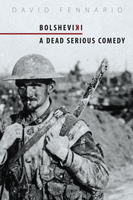 : : | Set in a hotel bar in Montreal on Remembrance Day, Bolsheviki has World War I veteran Harry �Rosie� Rollins telling young reporter Jerry Nines about his experience in the trenches. Rollins recalls men pissing their pants, losing limbs and planning a revolt against their officers. The character of Rosie Rollins is based on World War I veteran Harry �Rosie� Rowbottom, who was wounded at Vimy Ridge. Fennario taped an interview with Rowbottom in 1979 in the old �King Eddy� Hotel in Toronto over a bottle of Bushmills whiskey. Rosie�s meandering monologue delivers a blistering de-glorification of war as it shifts back and forth between his wartime recollections and the present. The veteran�s clattering, fast-paced description of life�and death�on the Western Front reproduces the chaotic sounds and rhythm of battle. This cutting-edge drama, profoundly in opposition to conventional histories of Canadian troops in World War I, debunks every sentimental notion of duty, heroism and nationhood. �Birth of Nation� they called it on TV but I didn�t see nobody getting born just a lot of people dying so we could sit there on top of another shit hole of mud with Captain Rutherford still pushing for that DSO or the MC or the MCB or the YMCA with Triangles�just give him a medal will ya? |

Lucia Frangione | Leave of Absence |
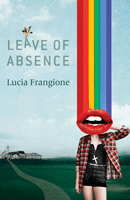 : : | A small prairie community is blown apart when an audacious teenaged girl challenges long-held views of spirituality and sexuality. Suspected of being gay, she is brutalized by her classmates. This searing drama of bigotry and transcendence challenges the fallout of the Catholic Church's response to the same-sex marriage rulings in Canada |

John Gray and Eric Peterson | Billy Bishop Goes To War |
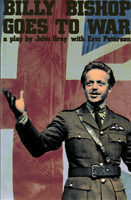 : : | The truth about war. a high-flying ace of a show celebrating the derring-do of Canada's greatest pilot hero. Billy is an anti-hero and the Bishop myth is inflated and deflated in the same gesture. |

 : : | In the fall of 1918, a world ravaged by four years of war was suddenly hit by a mysterious and deadly plague--the "Spanish Flu." The illness struck not only the young and the elderly, but also people in the prime of their lives, advancing rapidly toward mortality in its victims. as fear of the dreaded flu begins to fill the town of Unity with paranoia, drastic measures are taken. The town is quarantined in an attempt to keep the illness out. Trains are forbidden to stop, no one can enter, and the borders are sealed. But when the disease descends upon the town despite these precautions, the citizens begin to turn on each other as they attempt to find a scapegoat for the crisis. |

Larry Tremblay translated by Chantal Bilodeau | Abraham Lincoln Goes To The Theatre |
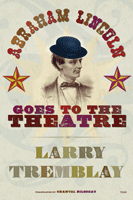 : : | John Wilkes Booth assassinated Abraham Lincoln at Ford�s Theatre in Washington D.C. Inside that theatre today, Ranger Powell of the U.S. Parks Service takes crowds of tourists, the curious and the ghoulish through a step-by-step description of the assassination. Underneath the box where Lincoln was shot, he describes the plot of the comedy Lincoln watched that night, Our American Cousin, as being �kind of like the Beverly Hillbillies.� Scratch the surface of any story and underneath you will ?nd layer upon layer of ?ction masquerading as fact. The play�s main character, Mark Killman�a feared but much admired director�draws inspiration from Abraham Lincoln�s assassination to stage the schizophrenia of America. He hires two actors to play Laurel and Hardy. Both are to re-enact the assassination, while he himself plays the iconic role of Abraham Lincoln as a wax ?gure. The script is frequently self-referential, building on each of these �retakes� with further allusions to itself, telling the same story many times over in different voices from different points of view. Tremblay quite explicitly stages elements of literary theory with this play, including references to Jean Baudrillard�s concept of the simulacra and the �desert of the real,� concepts ?rst popularized by the movie The Matrix - the idea that in our post-modern world, the imitator has become more relevant than the imitated, and that the virtual worlds we construct are becoming more �real� to us than the real world. Absurd, hilarious and haunting, Abraham Lincoln Goes to the Theatre is an unforgettable mystery that asks the question: How can we ever know who we are and what is true when the world we know is shifting beneath us? Its answer is simple: John Wilkes Booth was the ?rst American star - the actor who kidnapped reality to transform it into theatre. |

Wendy Lill | Occupation Of Heather Rose, The |
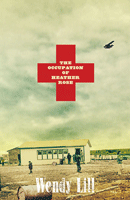 : : | Two epigraphs that frame The Occupation of Heather Rose, one from Alice in Wonderland and the other from Heart of Darkness, prepare the audience for the nightmare of dislocation and alienation this one-woman show evokes. Young, naïve, and inadequately trained, urban health care/social worker Heather Rose flirts with the pilot as she wings her way north in a bush plane, to land in an isolated and remote northern/Native community, carrying her Canada Food Guides, plans for fitness classes and community social activities with her. She is met, when she lands, with what she initially perceives as a careless disrespect for anything she has understood to date of culture and civilization. The destitute, wretched and alienated Native population she has been sent to �move forward� meet her bright imperial gaze with the blank stares that arise from relentless years of exploitation and broken promises. Nine months later Heather Rose is �bushed��utterly disillusioned by the growing horror of her new-found realization that what her culture has to offer this community: the alcohol bootlegged in by the charming bush pilot; the unsuitable clothing sold by the thoughtless proprietor of the general store; the gasoline used as much by the youth of the community to get high as to afford them access to what has become the tractless wilderness they inhabit; she finally understands is less than nothing�total dependency. She returns, compelled, like Marlowe in Heart of Darkness to tell her story to others�like her missing supervisor, whose empty office she �occupies� on her return, illustrating her monologue of despair on a blackboard to an absent colonial authority for which the audience stands in as its silent and complicit witness. |

Joan MacLeod | Amigo's Blue Guitar |
 : : | a college student's life is given meaning when he chooses to sponsor Elias, a Salvadoran refugee, as a class project. When Elias arrives, his hosts Sander and his family, learn what it means and feels like to be a refugee and how to relate to someone who has endured such intense personal grief. The warmth and humour of the characters invite us to embrace the situation, be moved by it, threatened by it, and to consider how we would react |

Joan MacLeod | Another Home Invasion |
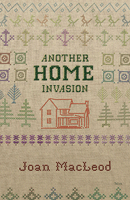 : : | We, each of us in the civilized Western world, live in a space inviolate. �Our home is our castle,� as the saying goes: our shelter from the intrusion of the weather and other �outside influences;� our defense against physical and mental threats, real and imagined, to our private space; vault to our accumulated private property; theatre of our desires and aspirations; arena of our private victories and defeats, no matter how large or small; harbour of our secrets and fears; refuge to our children and family. Yet the very protection and security our home provides us with also isolates us from our neighbours, our relatives, and the public affairs of our communities - constructs a garrison of anonymity around us and our loved ones in which we can become unknown, unloved - no one that anyone need be concerned nor care about. We see the recent rise of home invasions in our society as a violation of our most intimate places: the perpetration of heinous crimes upon the aged, the disabled, the helpless, victimizing our citizens precisely where rules of hospitality and generosity should govern our social relations. All this and more is the subject of Joan MacLeod's perceptively poignant play, Another Home Invasion, where �another� carries both its meanings: something commonplace; and something of an entirely different kind and nature. Of course this play involves the hapless, substance-abusing, middle-aged petty criminal we expect to find there, but is he the real threat to the home's occupants? He even shows up for a return visit. Who, then, are the real perpetrators of the heartless betrayal of the elderly couple who lives here: who is it that's robbing them of their possessions, their security, their relationship, their family - their home? The answers to these questions are as surprising as they are unsettling. |

Michel Marc Bouchard translated by Linda Gaboriau | Tom At The Farm |
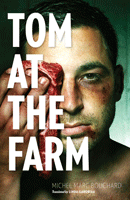 : : | Following the accidental death of his lover, and in the throes of his grief, urban ad executive Tom travels to the country to attend the funeral and to meet his mother-in-law, Agatha, and her son, Francis � neither of whom know Tom even exists. Arriving at the remote rural farm, and immediately drawn into the dysfunction of the family�s relationships, Tom is blindsided by his lost partner�s legacy of untruth. With the mother expecting a chainsmoking girlfriend, and the older brother hellbent on preserving a facade of normalcy, Tom is coerced into joining the duplicity until, at last, he confronts the torment that drove his lover to live in the shadows of deceit.The lover � the friend, the son, the brother, the nameless dead man � has left behind a fable woven of false-truths which, according to his own teenage diaries, were essential to his survival. In this same rural setting, one young man had once destroyed another young man who loved yet another. Like an ancient tragedy, years later, this drama will shape the destiny of Tom. |

Michel Tremblay translated by John Van Burek & Bill Glassco | Les Belles Soeurs |
 : : | Germaine Lauzon has just won a million trading stamps in the local lottery. To get them pasted into books, she invites her four sisters and a variety of close friends to assist her. While Germaine dreams of things she's always wanted and can now buy for herself, her sisters and friends scheme to thwart her, as they turn jealous with no understanding as to why Germaine should win, anything. Each sister explains her view of Germaine's life while they scheme to pilfer stamps away from her. Thrown into the wacky group is Germaine's daughter, Linda, who, going through the Dramatic changes of a misunderstood teenager, needs help dealing with her mother, and invites her friend Lisette to the house. But Lisette needs advice too, being newly pregnant, and finds Dear aunt Pierrette, the black sheep of the family, to advise her on whether to have an abortion, put the baby up for adoption, or any other alternative. Germaine battles with Linda, when she suddenly, realises some of her stamps are missing and catches the lad |

James W Nichol | Sainte-Marie Among the Hurons |
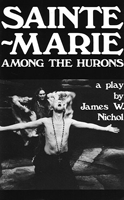 : : | Sainte-Marie Among the Hurons is James W. Nichol�s play concerning the disastrous mission that the Jesuits made to the Huron Indians in the seventeenth century. The play is about the conscience of a priest who refuses to accept salvation of his soul through the destruction of a proud people. |

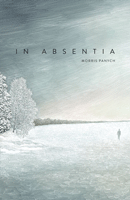 : : | Four seasons after her husband Tom�s disappearance, Colette remains emotionally paralyzed, isolated in a country cottage. She waits in anguish, not knowing whether he is dead or alive, but clinging to hope. A young stranger in a jean jacket waves to her from the frozen lake � a sign? She emerges to give him her husband�s parka � strangely, the boy has a likeness to Tom. What is the stranger�s connection to her geologist husband, kidnapped more than a year before by leftist guerrillas in Colombia? How does this slyly seductive young stranger happen to show up at her home in rural Ontario, thousands of miles away? He seems to know more about Colette than he should, and as he slowly insinuates himself into her life, Colette�s attentive sister, Evelyn, and her helpful neighbour Bill become increasingly alarmed. Part mystery, part moving story of vanished love, In Absentia explores the notion of disappearance, articulated in very personal terms. Through the tough, time-shifting action of the play, Colette reflects on her marriage and past love, offering rich associative memories while also uncovering the hidden and inaccessible � that which is made to disappear from view. Guilt and grief, infidelity and infertility, loss and longing are the deeper subjects Panych explores here. At the same time, the play examines the desire to make connections in life � thoughts to deeds, intentions to outcomes � in scenes often enlivened by the playwright�s trademark humour. |

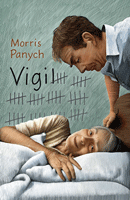 : : | Vigil is about a man returning�after thirty years�to sit with a female relative on her deathbed. Kemp, the protagonist, is an extremely self-centred and shallow person who uses acid wit and seemingly callous indifference to cover up the profound discomfort he experiences upon finding himself part of a death watch. Kemp�s problem is: she�s not dying fast enough. Through Kemp�s own errors and inattentiveness, the visit that he thinks will take a day or two stretches into a year, and he finds himself caring for his long-forgotten aunt Grace against his will. Gallows humour and Kemp�s diatribes on humanity and mortality fuel this delightfully dark narrative, but it is Grace�s economical contributions to the dialogue (she�s a woman of few words) that give this play its weight and profundity. A play of mistaken identity, twisted circumstance and surprising turns, it is deliciously absurd, incredibly funny and poignantly tender. This is one Vigil worth keeping. |

 : : | Part courtroom drama and part social satire, Seeds presents an intelligent portrait of farming and scientific communities in conflict and at the same time penetrates the complex science of genetically modified crops. The play documents the 2004 Supreme Court of Canada showdown between Saskatchewan farmer Percy Schmeiser and biotech multinational Monsanto Inc., a David-and-Goliath struggle that cast Schmeiser as the small-farmer underdog fighting the unscrupulous major corporation. Monsanto accused him of growing their genetically patented Roundup Ready canola seeds on his property without paying the licensing fee they require. Through a suspenseful labyrinth of legal conflicts regarding patent rights, scientific showdowns about GM food and property clashes between farmers and the biotechnology industry, Seeds asks the essential question: �"Can you patent a living thing?"� Or as Schmeiser famously asked, �"Who owns life?�"A most interesting aspect of the play is the ambiguity around the hero Percy Schmeiser. Is he a victim or an opportunist and self-publicist? Certainly, he's no innocent; as he keeps telling us, he's an experienced politician, in fact an ex-mayor. He's a believer who knows how to frame his beliefs to advantage. He can be grand and he can be petty - and as such he is antihero as much as hero. |

Drew Hayden Taylor | Berlin Blues, The |
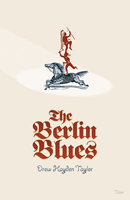 : : | A consortium of German developers shows up on the fictional Otter Lake Reserve with a seemingly irresistible offer to improve the local economy: the creation of �Ojibway World,� a Native theme park designed to attract European tourists, causing hilarious personal and political divisions within the local community. The Berlin Blues concludes Drew Hayden Taylor�s Blues quartet, showcasing contemporary stereotypes of First Nations people, including a fair number that originate from Indigenous communities themselves, to the often outraged delight of his international audiences. Yet Europeans and other ethnic groups are not exempt from Taylor�s incisive but good-humoured caricatures. Central to the motivation of these German developers are the hugely successful and best-selling adventure novels of the German author Karl May, whose work Adolf Hitler recommended as �good wholesome reading for all ages.� Written in the early twentieth century, they popularized Rousseau�s image of Indigenous peoples as �Noble Savages� among European, and especially German youth, and have led to the creation of Karl May theme parks all over central Europe, where adult tourists can shed their inhibitions and play Cowboys and Indians with a seriousness as ridiculous as it is abandoned. This is identity politics stripped of its politically correct hyper-seriousness and dramatized to its absurd and ultimately hilarious conclusion. |

Drew Hayden Taylor | Buz'Gem Blues |
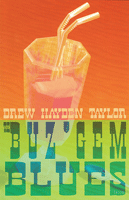 : : | Marianne has talked her mother, Martha, into attending an Elders conference with her, where she is to be used as a resource person, even though Martha doesn't believe she has anything to offer anyone. Held in a college setting, the keynote paper of the conference is a dissertation on "the courting, love, and sexual habits of contemporary First Nations people as perceived by Western Society," delivered by none other than a "Professor Savage." Just to keep the caricatures in balance, Savage's nemesis throughout the action is a young Native man, replete with dark sunglasses and a Mountie coat, "The Warrior Who Never Sleeps." As absurdly claustrophobic as Gilligan's Island (the Professor and Marianne become an item), Taylor is pulling some of our most revered icons-European anthropologists, their Native Elder informants and their militant young warrior critics-off their pedestals, looking for a place to ground them in a world where the most politically correct ethnic representation is a young woman, 1/64th Nativ |

Drew Hayden Taylor | Dead White Writer on the Floor |
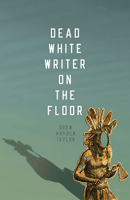 : : | Dead White Writer on the Floor uses two literary conventions�theatre of the absurd and mystery novels�to create one of the funniest and thought-provoking plays ever about identity politics. In Act One, six �savages�; noble, innocent, ignorant, fearless, wise and gay, respectively; find themselves in a locked room with the body of a white writer, which they stash in a closet. None of them can figure out how he died or which of them might have killed him. They realize as they point fingers at each other, however, that they are all profoundly unhappy with their lives as they�ve been constructed over the past four hundred years: Old Lodge Skins wants to know what it feels like to be a young man; Billy Jack wonders what spreading healing rather than pain would feel like; Injun Joe is desperate for an education; Kills Many Enemies is exhausted by his deadly seriousness and yearns for a sense of humour; Pocahontas seeks to feel respected as a woman rather than lusted after as a child sex object; and Tonto wants to �come out of the canyon� and be the one wearing the mask for a change. Gradually, they figure out that the latest iteration of Gutenberg�s invention buzzing like a beehive on the dead writer�s desk is actually a dream-catcher, which they can use to rewrite their lives in the image of their own inner beings. Imagine their surprise when they reappear in the same locked room in Act Two as Mike, Jim, Bill, John, Sally and Fred�attending an A.A. meeting and bickering among themselves about reserve politics, unmanageable family relationships and whether Bingo has a place in their new air-conditioned casino�and realize the white writer must still be very much alive in their community; his body in the closet is still warm! |

Guillermo Verdecchia | Fronteras Americanas |
 : : | Fuelled by equal parts outrage, intelligence and wit, Fronteras Americanas recreates one person�s struggle to construct a home between two cultures, while exploding the images and constructs built up around Latinos and Latin America. This one-person play works through bold juxtapositions and satiric reference points: Simon Bolivar and Speedy Gonzales; Columbus and Fodor�s travel guides; Ricky Ricardo and the Latin Lover; La Bamba and Placido Domingo; Carlos Fuentes and American drug-war movies. Verdecchia twirls stereotypes and cliches, offers comparative histories, examines myths and mysticism, and provides lessons in language and dancing. However, even as the ungovernable and surrealistic Fecundo Morales Secundo, or �Wideload,� edifies us about how sex between a �Latin� and a �Saxon� can be �a mind-expanding and culturally enriching experience,� eloquently quoting Octavio Paz and Federico García Lorca in direct response to contemporary struggles and injustices, he also transcends his role of � estereotype,� reaching a place beyond maps that are only metaphors where borders are more than divisions between countries and take on the most outlandish properties. |

George F Walker | King Of Thieves |
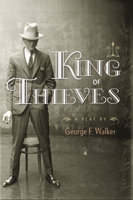 : : | New York City, 1928. Master-thief Mac must join an FBI sting operation against a cadre of corrupt bankers. Music, murder, and mayhem ensue � at the speakeasy where criminals scheme and on Wall Street where financiers conspire. This trenchantly satirical play was first produced at the Stratford Festival in 2009, where director Jennifer Tarver described it as being loosely based on John Gay�s Beggar�s Opera (1728) which was later immortalized in the great Brecht-Weill composition The Threepenny Opera (1928). Readers familiar with these works will delight in Walker�s inspired pairing of Mac and Polly, Peachum and his missus, Jenny Diver, and a host of others within the corrupt world of Wall Street bankers immediately before the 1929 market crash. Readers meeting these characters for the first time will find much to enjoy in Walker�s ready wit and keen sense of story. When the FBI blackmails Peachum into helping bring down a group of corrupt bankers, he partners with Mac, his son-in-law, to discover that the bankers are using their wealth to inflate the market, plotting to pull their assets just before the bubble bursts. They scheme to make new for- tunes by providing loans after everyone else goes bankrupt. If all of this sounds distressingly familiar, it should. At its heart, King of Thieves, like both its predecessors, is an examination of criminal behaviour at all levels of society, and of the disturbing truth that everyone can fall prey to dishonesty and corruption. But the element of fun in Walker�s script makes us laugh and his sense of zaniness reflects the bafflement many of us feel when contemplating our own world: a place where men of dubious moral integrity still inhabit the corridors of power and are still not taken to task for their dishonourable � if not downright criminal � behaviour. |






 :
:



































